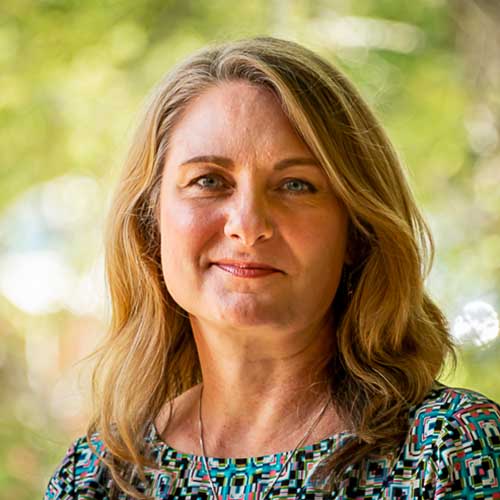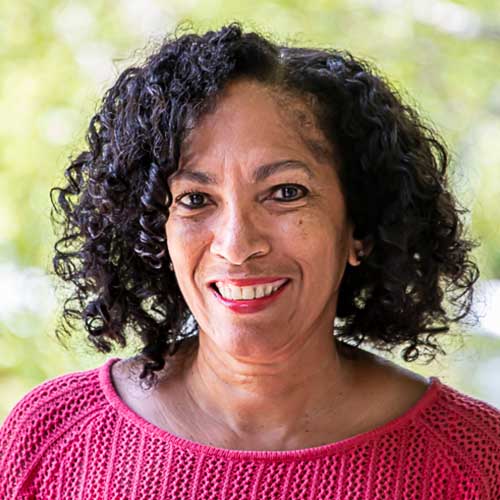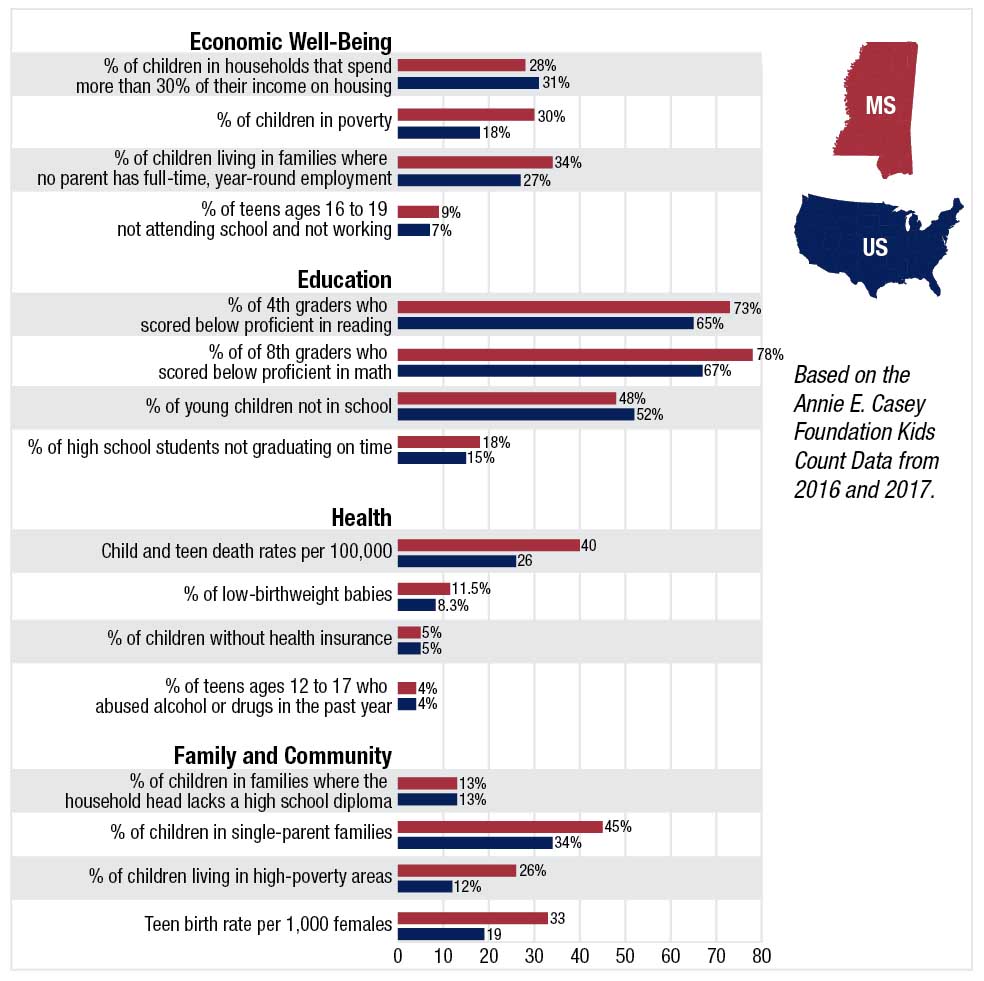The information presented on this page may be dated. It may refer to situations which have changed or people who are no longer affiliated with the university. It is archived as part of Mississippi State University's history.
Kids count is more than the name of the Annie E. Casey Foundation's national data project on the status of children and families. It is also the passion that fuels three Social Science Research Center scientists.
Drs. Linda Southward, Heather Hanna, and Connie Baird-Thomas conduct research in the Family and Children Research Unit of the center. Together, along with a team of dedicated professionals, they collect data, research policies, and present evidenced-based recommendations to improve the well-being of Mississippi's children.
Southward and Hanna, both scientists in the Mississippi Agricultural and Forestry Experiment Station, co-direct Mississippi KIDS COUNT, which is part of the national program that collects data in four sectors: economic well-being, health, family and community, and education. Each sector contains four indicators for a total of 16 different rankings, standardized across the U.S.
Since 2007, the Social Science Research Center has been compiling and synthesizing data, year-round, from sources, including the U.S. Census Bureau, American Community Survey, Population Reference Bureau, Annie E. Casey Foundation, plus a myriad of other federal and state sources.
A component of KIDS COUNT includes policy recommendations designed to improve the well-being of children and families. The scientists review literature, conduct surveys, and organize focus groups and workshops to develop policy briefs on topics pertinent to Mississippians.
"We gather policy recommendations from a variety of sources and tailor applicable ones to Mississippi," Southward said.
"We are always looking for evidence-based policies that improve outcomes for children, families, and communities. We use the Annie E. Casey Foundation as a resource because they do a good job of developing policy recommendations, and we also rely on state agency personnel, who often review and provide feedback on our recommendations."
The scientists also have a strong ally to assist with policy recommendations in a diverse advisory board that provides direction and guidance.
"We are fortunate to have a stellar group of individuals representing different entities and reflective of the state's population to advise and promote the work of Mississippi KIDS COUNT," Southward said. "We depend on their expertise to ensure KIDS COUNT data are easy to understand, and the policy recommendations are consistent with what the needs are in Mississippi."
Mississippi KIDS COUNT data and policy recommendations are distributed to child advocacy groups, state agencies, the Mississippi legislature, and are available to the public. The group has seen some policy recommendations get passed into law, such as publicly funded pre-kindergarten programs.
"To know that Mississippi KIDS COUNT data and studies within the Social Science Research Center were used to help this initiative become law is rewarding," Southward said.
In 2014, the state began funding public pre-k. There were a limited number of public pre-k programs prior to the legislative act, primarily funded by local school districts through Title I funds and local support. Mississippi is now currently serving about five percent of the state's four-year-olds in state-funded pre-kindergarten, so clearly there is an opportunity for greater expansion.
In a similar but separate project, the Mississippi Data project, funded by the W.K. Kellogg Foundation, supports the foundation's work in Mississippi. Southward and Baird-Thomas co-direct this project.
"The Mississippi Data Project focuses on thriving children, working families and equitable communities, and provides information to other Mississippi W. K. Kellogg grantees," Baird-Thomas said. "We use some of the data from Mississippi KIDS COUNT in addition to other datasets."
The W. K. Kellogg Foundation funds projects across the U.S. and internationally including 32 active projects in the Magnolia State, with an emphasis on Sunflower County, East Biloxi, and portions of Jackson.
"The Mississippi Data Project looks at indicators for children from birth to age eight, while KIDS COUNT includes children from birth to age 18," Baird-Thomas said. "We are also able to address specific questions, for instance, 'What does the impact of home visiting programs have on kindergarten readiness?'"
One specific question asked in the Mississippi Data Project to help advance the pre-kindergarten collaborative was the impact of pre-k on third grade reading scores.
Scientists found that students who attended pre-k were one and half to two times more likely to have a higher third-grade reading score. Going further, they found that children who read proficiently in third grade were six to seven times more likely to read proficiently in eighth grade. And those who read proficiently in eighth grade were 10-12 times more likely to graduate on time.
"When you trace it back, there's so much brain growth that happens in the first thousand days of a child's life and up through the first five years," Southward said. "What we have found is that early experiences are great predictors of a child's kindergarten readiness, which then translates into third-grade reading success."
The Mississippi Data project provides information for Kellogg grantees and the general public to query, via their website.
"One of the outcomes of this project is a wealth of data that is easy to find, free to use, and understandable," Baird-Thomas said. "We have made data accessible to grantees and anyone who needs it to be able to find it quickly and easily, without going through numerous searches."
Building on the legacy of these two projects, the trio have now begun an exciting program in collaboration with the University of Mississippi Medical Center. The multi-pronged, multifaceted MS THRIVE! Child Health Development Project will create a system to enhance early childhood development.
Prior to the MS THRIVE! project, the scientists assessed around 1,800 pre-k students using the Ages and Stages Questionnaire, an assessment tool that screens children for developmental and social-emotional progress. The Ages and Stages Questionnaire identifies developmental progress in children ages one month to five and a half years.
"We found that only about half of the students screened were developing appropriately, while a quarter of the students needed monitoring, and the other quarter needed immediate referral for developmental delays," Hanna said. "This was very eye-opening to us. Upon further investigation, we found that Mississippi has the lowest rate of developmental screening of children in the country at just 18 percent, as measured by the National Survey of Children's Health."
The scientists are using multiple avenues to impact the system through three types of caregivers: healthcare providers, childcare providers, and parents.
Medical staff from the University of Mississippi Medical Center are engaging in practice transformation at the pediatric offices, from the first time the family walks through the door.
"We want pediatricians to complete the appropriate screenings and make the appropriate referrals when necessary," Hanna added. "The University of Mississippi Medical Center is also looking at ways through which more children can be reached via their telehealth project."
The University of Mississippi Medical System has also instituted a fellowship program that currently includes five fellows in social work, general medicine (nurse practitioner), speech pathology, and clinical psychology to provide specialized training in early childhood development to prepare the upcoming practitioners for their future practice.
Scientists in the Social Science Research Center are working with the State Department of Health Licensure Division to train childcare directors and staff on developmental screenings and the importance of marking milestones for young children and the importance of making referrals for assistance when appropriate.
Southward said there is a large health literacy component within the project to help parents become more aware and to let them know they have the right to ask for developmental screenings and treatment when they interact with healthcare providers.
"It's a wellness approach. We want to create a culture of health within the state, particularly focused on young children," Southward explained. "The requirements to get into pre-k or kindergarten are proof of residency, age of the child, and an immunization record. We want to stress the importance of this wellness approach in Mississippi, with an early developmental screening becoming a piece of that puzzle."
The study that spurred the early childhood development program was based largely on a study in North Carolina.
"There was a seminal piece of work that looked at children who were screened early and had the appropriate referral and follow up," Southward said. "The study found that the likelihood of a child entering special education was decreased when the early development screening was implemented."
Additionally, Southward pointed out, if the child did enter special education, the time in the program was decreased.
"The premise is that if you detect something early, you are able to get it fixed," she said. "If we can get to children early, while their brains are still developing at such a fast pace and identify concerns, with appropriate referrals, interventions, and follow-ups then it's a game changer for children and families in this state."
The bottom line for this passionate group of scientists is improved services and outcomes for children, families, and communities, which in turn strengthens the state.
"When we do what it takes for Mississippi's children to thrive, we equip tomorrow's neighbors, workforce, and leaders to do what it takes for Mississippi to thrive," Southward said.
For more on Mississippi KIDS COUNT, visit https://kidscount.ssrc.msstate.edu. For more on the Mississippi Data Project, visit https://msdataproject.com. For more on the Child Health Development Project, visit https://mississippithrive.com. Current project sponsors include Annie E. Casey Foundation, Center for Mississippi Health Policy, U.S. Health Resources & Services Administration, and the W. K. Kellogg Foundation.
The Child Health and Development Project: MS THRIVE! is supported by the Health Resources and Services Administration (HRSA) of the U. S. Department of Health and Human Services (HHS) as part of an award totaling $10.5 million with 0 percent financed with non-governmental sources. The contents are those of the author(s) and do not necessarily represent the official views of, nor an endorsement, by HRSA, HHS, or the U.S. Government. For more information, please visit HRSA.gov.
Behind the Science

Heather Hanna
Assistant Research Professor
Education: B.S., Psychology, University of Mississippi; M.S., Sociology, Ph.D., Public Policy and Administration, Mississippi State University
Years At MSU: 15
Focus: Policy research and systems change
Passion At Work: Given that too many children lack needed developmental services in Mississippi, this work is an opportunity to improve the systems that serve them.

Connie Baird-Thomas
Research Professor and Associate Director of the Family and Children Research Unit, Social Science Research Center
Education: B.S., Sociology, Tougaloo College; Ph.D., Sociology, Mississippi State University
Years At MSU: 22
Focus: Evaluation research
Passion At Work: Evaluation is an essential part of effective program planning and implementation.


